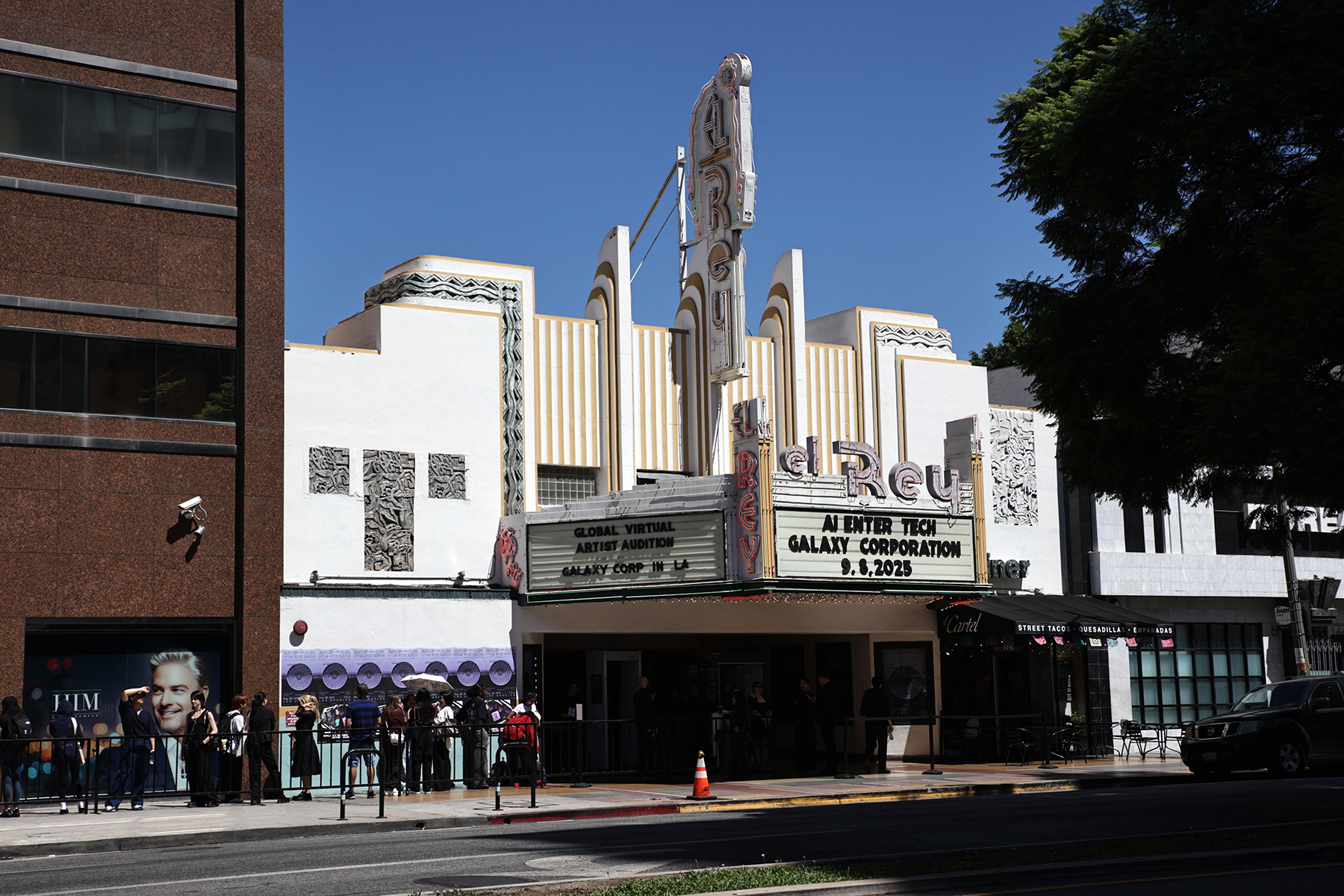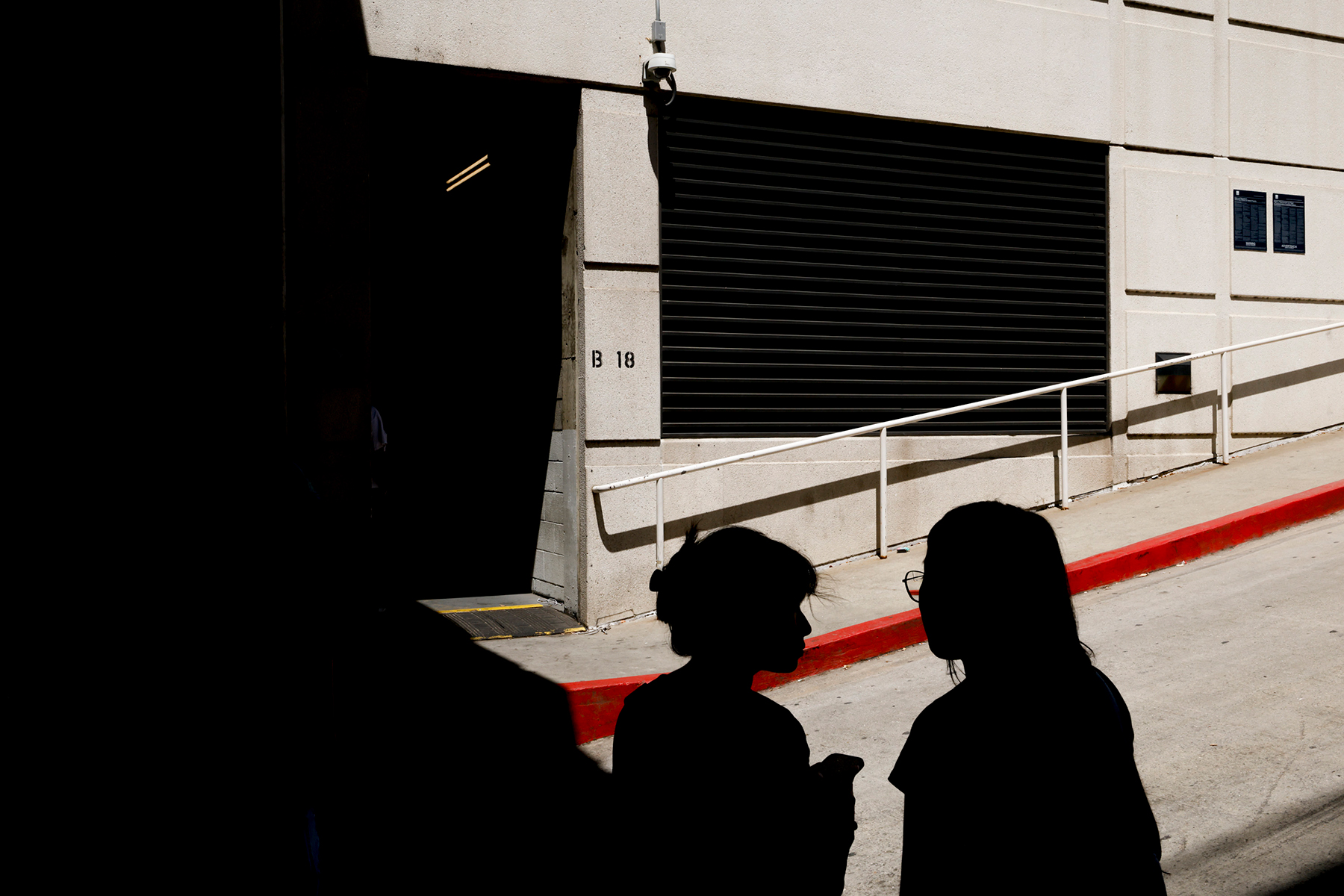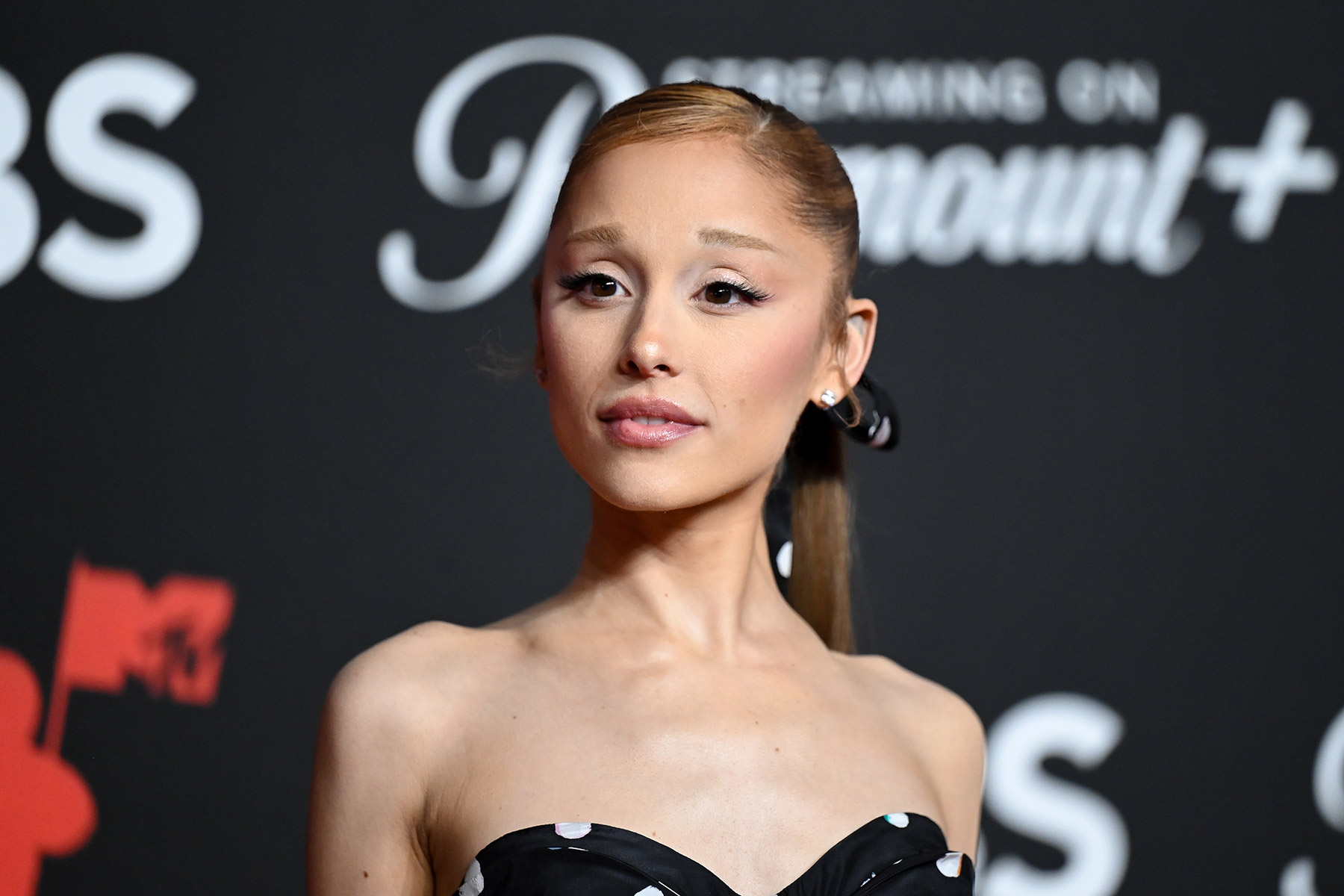Entertainment
How Visa Issues Are Threatening Artists’ Careers — And the Music Companies That Work With Them

Just a day before his sold-out show at the AT&T Stadium in Texas, regional Mexican star Julión Álvarez posted an “urgent” announcement on his social media, informing the 50,000 fans who purchased a ticket to the May 24-dated show that it was cancelled.
The reason: Álvarez’s work visa had been revoked and the artist could no longer legally enter the United States. The last-minute cancellation not only led to a total loss of over $2 million that went into the production of the event, but it also derailed an entire promotional plan that had successfully launched a month before with three sold-out dates at SoFi Stadium in L.A., marking the long-awaited return of the norteño artist. The “Box Office King,” who hadn’t performed in the U.S. since 2017, was once again sidelined by visa issues. To this day, his highly anticipated 4218 Tour USA 2025 remains in limbo.
Over the past few months, an increasing number of acts — from Mexico, Cuba and other Latin American countries — have publicly or privately dealt with visa hurdles that have led to tour or show cancellations in the U.S. For some, their O-1 or P-1B visas, generally reserved for artists and musicians, have been suddenly revoked. Others have found their applications under stricter vetting by multiple U.S. government agencies who, under the Trump administration, have only made an already complex process even more complicated.
The impact a denied or revoked visa can have on an artist varies case by case, taking into consideration where a particular artist is in their career. But either way, the recent cases have shaken up the Latin music industry. “Touring the U.S. is an important part of a release plan, whether it’s a bar with 600 capacity or an arena,” says Tomas Cookman, founder of Nacional Records and the LAMC, and partner at Magnus Talent Agency. “Many musicians feel that touring here is an important part of their process and trajectory as a global artist. It’s difficult to be at a certain level and not have toured the U.S., especially as a Latin artist who can visit so many Latino-populated hubs within the country that historically has always supported tons of live shows.”
Nonimmigrant visas are not an indefinite type of visa; they offer a temporary stay in the United States for a specific purpose, as opposed to, for example, a green card or a permanent resident card that grants the holder the status of a lawful permanent resident. While visa revocations are not common, they can happen to anyone, at any time, holding a nonimmigrant visa and can occur for multiple reasons, including criminal activity, security concerns or violation of visa terms, to name a few factors.
The State Department’s Bureau of Consular Affairs generally does not publish statistics on revocations. But since Trump took office in January, the State Department has revoked over 6,000 student visas, to name one classification, according to news reports. “No one knows how it’s being brought to the attention of those who are in the position to make these revocation decisions, or why they are deciding to do this now,” immigration attorney Daniel Hanlon previously told Billboard. “It could be completely politically motivated.”
Regional Mexican artists have mainly borne the brunt of this situation with publicly known cases for Álvarez; Los Alegres del Barranco, who lost their visa after the group portrayed images “glorifying” drug kingpin “El Mencho” at a concert in Mexico in March; and Grupo Firme, which canceled its participation at La Onda Fest in June over visas delayed in administrative processing.
For one executive at a regional Mexican indie label, who prefers to remain anonymous and is not associated with the aforementioned acts, their marquee artist suddenly having to cancel shows in the U.S. over visa uncertainty led to higher-than-usual stress levels, to the point where they questioned if the company could survive those cancelations. “When our main source of income loses a large percentage of that income, you enter a moment of uncertainty because we didn’t know if this would be remedied quickly or if there was a bigger problem than just losing a visa,” the executive explains.
Even today, when Latin music has gone global and there’s a huge number of Latin artists touring in other markets, including Europe, the U.S. remains the No. 1 market for any artist, and losing a gig here is a major financial blow. “You get guys like Firme and Julión who gross $10 million in one night [in the U.S.],” CMN’s Henry Cárdenas previously told Billboard. “This is where you make the big money — you don’t make that money in Mexico, with all due respect.”
Besides touring in the U.S., promoting their work here — from radio shows to making the rounds at DSPs and attending major award shows that take place in the U.S. like the Billboard Latin Music Awards and Latin Grammys — remains crucial for any artist. The country continues to be the No. 1 global music market, with music revenue growing 2.2% year-on-year, according to the IFPI Global Music Report 2025, powered by streaming revenue that is greater than in any other country.
The per-stream rate varies from country to country, but a stream coming from Mexico is worth about 2% of a stream coming from the U.S., Josh Norek, president of Regalias Digitales, previously explained to Billboard. For a DSP like Spotify, a premium account is worth more on a per-stream basis than a free account. “You go from paying like $10 a month for Spotify Premium here to the [more common] free ad-supported tier in Mexico, Guatemala or Venezuela and it will generate almost nothing,” added Norek. That makes it even more important for Latin artists to build fan bases in the U.S., given how dominant streaming is in the current music business.
For Cuban artists — who have another set of challenges to deal with due to the ever-shifting diplomatic relations between the U.S. and Cuba, and sanctions that have cut off the island from Spotify or Amazon Music (YouTube is available but it’s not monetized) — the impact goes beyond just financial. “There’s a toll on their mental health as well,” says Collin Laverty, whose expertise on U.S.-Cuba relations has led him to work closely with several Cuban artists, including Cimafunk. “Being able to travel to the U.S. and tour is an important outlet economically and psychologically, so complicating that on the immigration front is so detrimental to a career but also the psyche.”
The most common issue for Cuban artists under President Trump is approval delays and extreme vetting at U.S. embassies and consulates following the Trump-imposed travel ban on several countries, including Venezuela and Cuba. The ban partially restricts and limits the entry of both immigrants and nonimmigrants from those nations. “There’s still a legal avenue but it’s hard to meet the threshold to get approval for a visa and root out the politics,” Laverty says. Because Cuba is on the state sponsors of terrorism list under the Trump-imposed travel ban, “90% of visa applicants get sent to admin review status, which is a multi-agency review that can take months,” he adds. “They are almost always approved but almost always delayed, so that makes it difficult for promoters and festivals to even book Cuban artists.”
Travel restrictions for Cuban artists already existed pre-Trump. In the early 2000s, U.S. visa restrictions tightened under the Bush administration, which made it difficult to get permission to travel to the U.S. During that time, the U.S. State Department’s crackdown on Cuban visitors impacted Latin Grammy-nominated artists who secured visas just days before the event, while others, for lack of visas, were forced to miss the Latin Grammys ceremony in Miami in 2003. That was reversed during the Obama administration which, like the Biden administration, facilitated visas as much as possible, allowing for more cultural exchange between the two countries, albeit with some challenges created outside of the executive branch.
Trump’s latest administration overturned that policy just as a burgeoning new urban movement, led by a new generation of reparto artists, has gained momentum outside of Cuba, including in Miami, home to the largest Cuban population outside of Cuba.
“It’s more essential now than ever for an artist to be able to promote their music in the U.S.,” says Laverty. “It’s a tough reality to be a Cuban artist and feel trapped because Cuba is going through a real difficult moment economically, socially and politically. There is a fan base here, with more than 2 million Cuban Americans living in the U.S. Sure, you can go to Europe and Latin America but there are less Cuban nationals living there, less money, less industry infrastructure. And, if you’re trying to get nominated for an award and you can’t participate in showcases or in person meetings, it makes it really difficult for career growth.”
Entertainment
No ‘Good’ Deed Goes Unpunished for Ariana Grande’s Glinda in Final ‘Wicked: For Good’ Trailer

In the final trailer for Wicked: For Good, Ariana Grande‘s character learns that a big price comes with being Glinda the Good.
Released on Wednesday (Sept. 24) — about two months before the Wicked sequel finally premieres in theaters on Nov. 21 — the preview shows how the blonde leading lady wrestles with her new role as Oz’s spokeswoman, as Cynthia Erivo‘s Elphaba attempts to expose the Wizard’s evil agenda while living in hiding. At first, Glinda is “obsess-ulated” with the gorgeous gown, tiara and mechanical flying bubble her public-facing life affords her — but everything quickly comes crashing down when she realizes that she’s on the wrong side of history, and that she just might be too late to save her former schoolmate from the wrath of Oz’s brainwashed citizens.
“I’m a public figure now, people expect me to …,” Glinda tells Elphaba at one point, with Dorothy’s fallen house and the Yellow Brick Road visible in the background.
“Lie?” the green-skinned witch cuts in, to which Glinda says defensively, “Be encouraging.”
Grande’s character is less sure of herself when she is confronted by Jonathan Bailey’s Fiyero, who accuses, “You can’t resist this.”
“Who could?” Glinda asks, to which the Winkie prince replies, “You know who could.”
Arriving one year after the first Wicked hit theaters and shattered movie-musical box-office records, For Good will serve as the film adaptation of the second act of the Broadway musical on which the live-actions are based. The soundtrack will also drop on Nov. 21, complete with two brand new songs sung by Grande and Erivo.
As revealed when the tracklist dropped a week prior to the new trailer, the title of Glinda’s bonus song is “The Girl in the Bubble,” while Elphaba’s added balled is called “No Place Like Home.”
Watch the final trailer for Wicked: For Good above.
Entertainment
Priscilla Presley Says That Leaving Elvis Presley Was ‘The Only Way to Survive’ in New Memoir ‘Softly, As I Leave You: Life After Elvis’

All products and services featured are independently chosen by editors. However, Billboard may receive a commission on orders placed through its retail links, and the retailer may receive certain auditable data for accounting purposes.
Priscilla Presley was with Elvis Presley for around 14 years before they split; however, the pair had known each other for years before they wed in 1967.
The time in between and following Priscilla and Elvis’ divorce was a tough spot for Priscilla, and one she wasn’t super open about — that is, until now. In her new memoir Softly, As I Leave You: Life After Elvis, the actress shares the difficult but inspiring journey beyond the walls of Graceland post-split with the King, choosing to put herself and her daughter, Lisa Marie Presley, first.
A hardcover version of the book is now on sale and can be purchased now on Amazon for $22.38, while paperback will run you $32. A Kindle version retails for $15.99. If you’re a superfan of Priscilla and the Presley family, you can also snag a signed version of the memoir via Barnes & Noble for $32. The piece makes a great gift for the avid Elvis collector in your life. If you’d rather listen to the memoir, we won’t judge, you can do so with Audible via a subscription which costs $7.95 a month, a price tag less than a physical copy.
Softly, As I Leave You: Life After Elvis
A new memoir by Priscilla Presley.
If you didn’t know, Priscilla met Elvis when she was just 14 and he was 24. The singer was serving in the U.S. Army in 1959 in Germany. The pair remained romantically connected for years, even with distance between them and in 1967, they were wed in a simple and very secret ceremony in Las Vegas. While their separation in 1973 was painful for Priscilla, this novel highlights why it was so important for the Naked Gun star to leave.
It seems that Priscilla lost touch with herself throughout her relationship with Elvis. Leaving allowed her to find herself again. Through the book, we are treated to snippets of Priscilla’s life pre- and post-Elvis and how she had to reinvent herself a second time as the single mother after the performer’s death in 1977.
Today, we are taken through how Priscilla was able to transform Graceland into an international destination and helped guide the development of Elvis Presley Enterprises, turning the King’s legacy into a full-on business. If you are an Elvis fan, this gives readers a unique perspective on his life, as told by his ex-wife. It also gives Priscilla’s story more context for those who aren’t too familiar with her life and career.
Entertainment
Calvin Harris’ Ex-Business Manager Denies $22M Fraud Claims: ‘Categorically False’

Calvin Harris‘ former longtime business manager is firing back against bombshell fraud claims, saying he never stole from anybody and that the Scottish DJ willingly agreed to invest in his Los Angeles real estate development project.
Thomas St. John, an entertainment industry-focused accountant who runs the eponymous firm Thomas St. John Group, is currently wrapped up in thorny arbitration proceedings with his former client Harris (Adam Wiles). He’s accused of abusing his access to Harris’ accounts in order to fund his side venture: the construction of a recording studio and office space complex in Hollywood.
Harris claims that St. John tricked him into investing $22.5 million in the project, known as CMNTY Culture Campus, which he says turned out to be a “complete boondoggle” that he “has not received a single penny in return for” — while suggesting that St. John pocketed much of the money for himself.
However, a representative for St. John says in a new statement that the allegations are “categorically false.” The rep denies that St. John engaged in any self-dealing, adding that Harris is one of nine above-board investors who “knowingly signed investment agreements” to get involved in CMNTY Culture.
“Not a single dollar has been misappropriated, all investor entitlements remain intact, and the project continues to advance within the normal entitlement timeline,” says St. John’s rep in the Tuesday (Sept. 23) statement. “We will continue to take every necessary step to set the record straight and to ensure that these malicious, bad-faith attacks are recognized for what they are: entirely without merit.”
While CMNTY Culture was initially designed to house a recording studio and office space, St. John has since shifted the plans and is now developing a residential apartment complex on the same tract of land in Hollywood. According to his rep, the project is proceeding apace and “is expected to approach a $1 billion valuation” upon completion.
“While the entitlement process has naturally taken longer than initially projected due to unprecedented interest, macroeconomic conditions and significant city red tape, it remains firmly within its promised schedule and is now on the verge of securing final entitlements, an important milestone that will unlock substantial value,” adds St. John’s rep.
Thomas St. John Group has offices in Los Angeles, London, Amsterdam and Stockholm. The management firm’s U.S. arm recently filed for bankruptcy, citing hundreds of thousands of dollars in unpaid rent in L.A. and multiple pending legal actions.
One creditor listed in the firm’s bankruptcy papers is Philip Lawrence, a songwriter and producer who made his name collaborating with Bruno Mars. Lawrence used to be a client of St. John’s and at one point invested $10 million from the sale of his catalog into CMNTY Culture Campus, according to court filings in Lawrence’s own personal bankruptcy case.
-

 Entertainment6 months ago
Entertainment6 months agoNew Kid and Family Movies in 2025: Calendar of Release Dates (Updating)
-

 Entertainment3 months ago
Entertainment3 months agoBrooklyn Mirage Has Been Quietly Co-Managed by Hedge Fund Manager Axar Capital Amid Reopening Drama
-
Tech6 months ago
The best sexting apps in 2025
-

 Entertainment5 months ago
Entertainment5 months agoKid and Family TV Shows in 2025: New Series & Season Premiere Dates (Updating)
-

 Tech7 months ago
Tech7 months agoEvery potential TikTok buyer we know about
-
Tech7 months ago
iOS 18.4 developer beta released — heres what you can expect
-

 Tech7 months ago
Tech7 months agoAre You an RSSMasher?
-

 Politics7 months ago
Politics7 months agoDOGE-ing toward the best Department of Defense ever












